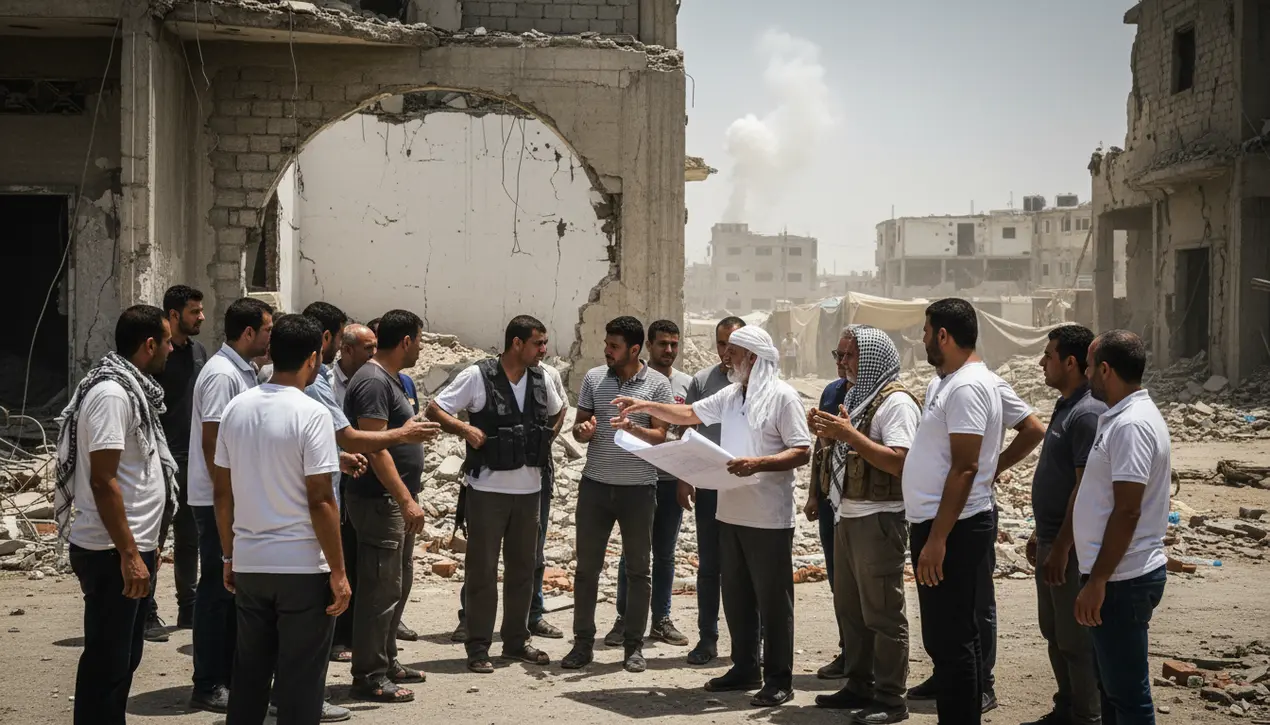
Politicsconflict & defenseMilitary Operations
Anti-Hamas Groups in Gaza Seek Role in Post-War Peace Plan
OL
Oliver Scott
20 hours ago7 min read2 comments
The political landscape within Gaza is fracturing in a manner reminiscent of historical power vacuums, where the collapse of a dominant authority creates a volatile ecosystem for emergent, often competing, factions. Several distinct groups, some operating with tacit or direct backing from Israeli intelligence, are now actively positioning themselves as credible alternatives to Hamas, creating a complex and overlapping network of alliances and rivalries that will decisively shape any post-war governance structure.This is not merely an internal power struggle; it is a high-stakes geopolitical chess match playing out in real-time. Analysts are closely monitoring groups like the Palestinian clans, which have historically held significant social sway, as well as more structured, if smaller, militant factions that have maintained an anti-Hamas stance for years, often from exile.The critical risk factor, from a political risk perspective, is the inherent fragility of these entities. Many lack broad popular legitimacy or a coherent political platform beyond their opposition to Hamas, making them vulnerable to being perceived as Israeli proxies—a fatal label in the court of Palestinian public opinion.This scenario echoes past failures where external powers attempted to install pliable leadership in post-conflict zones, only to see those figures quickly overwhelmed by more organically rooted, resistant movements. The Israeli strategy appears to be a calculated bet on fostering a decentralized, localized governance model in Gaza to prevent the re-emergence of a unified, hostile entity on its border.However, this approach carries its own profound risks, including the potential for prolonged internecine conflict, the Balkanization of the territory into fiefdoms controlled by armed groups, and the creation of a permanent security crisis. For any peace plan to hold, it must navigate a treacherous path: it must integrate these anti-Hamas elements without alienating the broader Palestinian population, secure buy-in from regional powers like Egypt and Qatar who have their own strategic interests, and present a credible, demilitarized pathway to eventual Palestinian self-determination.The alternative—a Gaza with no clear governing authority, plagued by warlordism and continued low-intensity conflict—represents a worst-case scenario for regional stability, offering a fertile ground for even more extreme ideologies to take root. The coming months will be a critical test of whether a sustainable political architecture can be engineered from the ruins, or if the power vacuum left by Hamas's potential degradation simply sets the stage for the next cycle of violence.
#featured
#Gaza
#Hamas
#armed groups
#Israel
#peace plan
#conflict
#diplomacy
Stay Informed. Act Smarter.
Get weekly highlights, major headlines, and expert insights — then put your knowledge to work in our live prediction markets.
Comments
Loading comments...
© 2025 Outpoll Service LTD. All rights reserved.